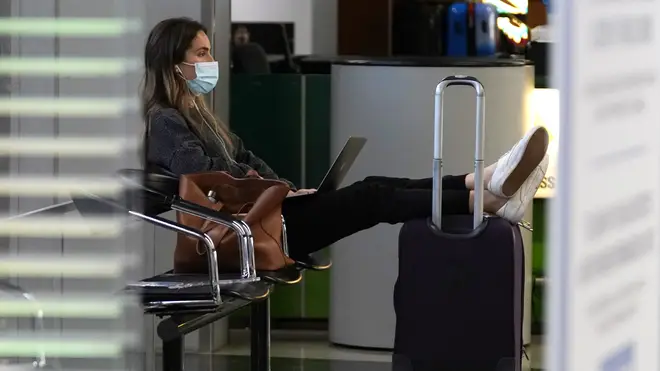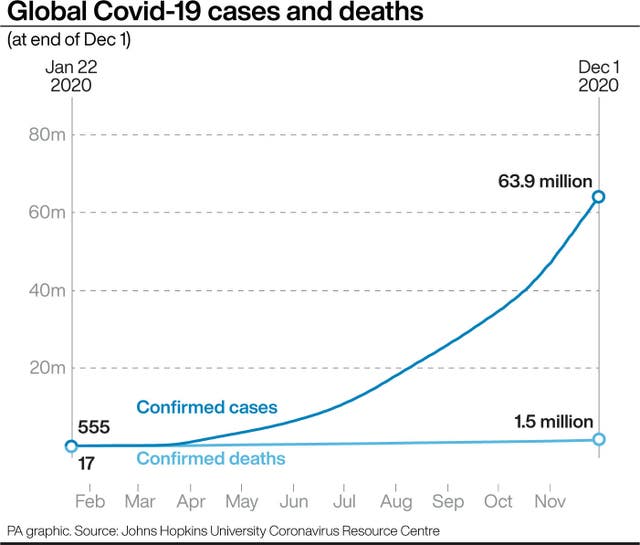
Tonight with Andrew Marr 6pm - 7pm
2 December 2020, 14:24

EU nations are warned against too much loosening of restrictions over the festive period.
The European Commission has urged nations to keep strong coronavirus restrictions in place to avoid a post-Christmas surge in cases and deaths – but stopped short of advising against travel.
In non-binding recommendations published on Wednesday, the commission warned easing measures this month will jeopardise efforts that have helped slow infections across the EU in recent weeks.
According to predictions made by the European Centre for Disease Prevention and Control, lifting all anti-coronavirus restrictions on December 21 will result in “a subsequent increase in Covid-19 hospital admissions… as early as the first week of January 2021″.
New confirmed cases are falling steadily across Europe, where more than 300,000 people with Covid-19 have died, but the commission is urging caution until vaccines against the virus are rolled out.
EU health commissioner Stella Kyriakides said: “Every 17 seconds a person loses their life due to Covid-19 in Europe. The situation may be stabilising, but it remains delicate.
“Like everything else this year, end of the year festivities will be different. This year, saving lives must come before celebrations.”
EU health ministers discussed the European Commission’s strategy on Wednesday as European countries famous for their skiing resorts struggled to find a common approach.
Restrictions to slow the spread of the virus have kept ski lifts closed in Italy, France and Germany but other nations have expressed concern about the decision – which will have a major economic impact.
Earlier this year, ski resorts in France, Italy and Austria were the sites of several super-spreading events that helped seed Covid-19 outbreaks across the continent.
Austria has now announced that it will allow skiing to start on December 24, but the capacity of ski lifts will be limited and restaurants, bars and hotels will remain largely closed until early January.
It also will require many people entering the country over the Christmas period to go into quarantine.
That will effectively mean that, over the festive season, skiing is possible in most cases only on day trips for those Austrian residents who live fairly close to the Alps – a policy Vice-Chancellor Werner Kogler said is “absolutely justified”.
The commission, however, does not discourage tourism and cross-border travelling this Christmas.
“Whilst travel itself is a risk factor, the generalised widespread transmission of Covid-19 across member states means that at present, intra-EU cross-border travel does not present a significant added risk,” it said.
But the commission does “strongly discourage” people with coronavirus symptoms from travelling and recommends vaccination against flu for travellers.

“Where possible, public transport options and capacities should be increased to reduce crowding, particularly on days or at times expected to be relatively busier to ensure social distancing,” it said.
“The use of masks should be compulsory in public transport, and all vehicles should be well ventilated.”
To keep outbreaks in check, the EU’s executive arm also invites member nations to consider night-time curfews, a ban on mass gatherings, to issue clear guidelines for small private reunions, and to consider extending school breaks or introducing a period of online teaching to prevent students from bringing the virus back to schools.
For EU members considering a temporary loosening of their infection-control rules, the commission promotes the use of “household bubbles, which means people are encouraged to spend the days of the festivities with the same people and to reduce further social contacts.
The commission also recommends avoiding large religious services and for churches, synagogues and mosques to use online, TV or radio broadcasts instead.